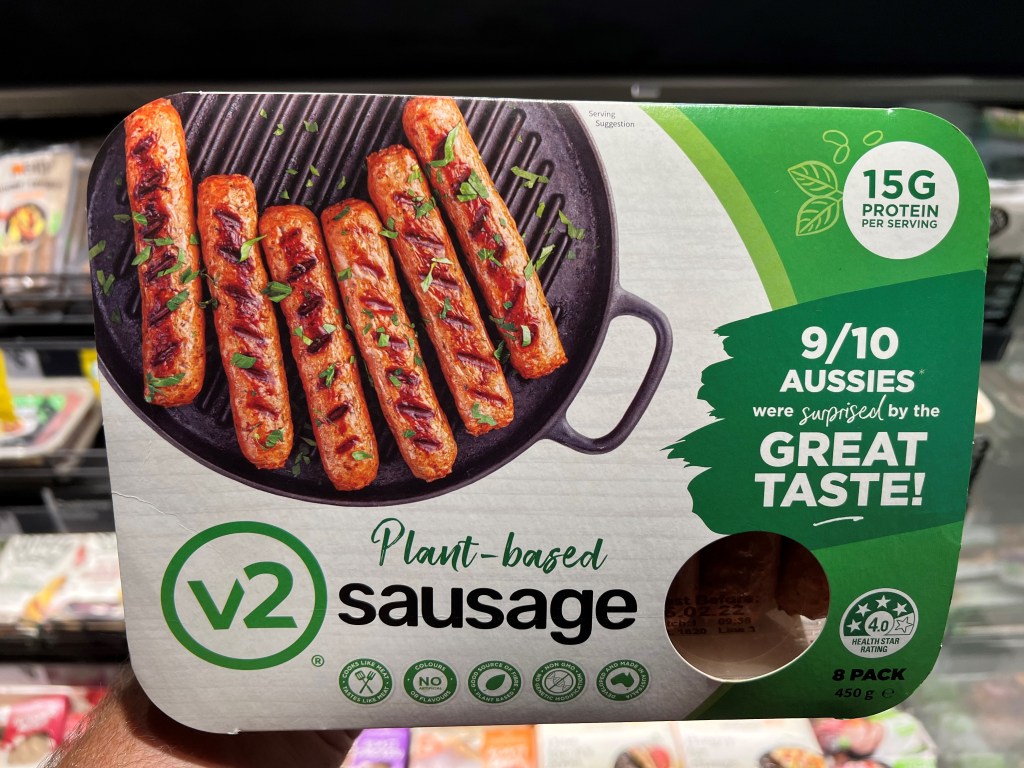A new study has found Australian consumers are not confused about plant-based food labelling, despite recently released Senate inquiry findings recommending a complete overhaul of labelling practices.
The recent Senate Rural and Regional Affairs and Transport Legislation Committee inquiry into food labelling in Australia was based on anecdotal suggestions that current product labelling is causing consumers to mistakenly purchase plant-based meat products instead of their traditional meat counterparts.
The inquiry targeted labelling featuring images of livestock and descriptive terms such as ‘meat’ and ‘beef’.
Despite the Australian Competition and Consumer Commission and Food Standards Australia and New Zealand confirming there’s no evidence to support claims of consumer confusion, the inquiry, led by Queensland Nationals’ senator and grazier Susan McDonald, recommended significant changes to labelling practices.
These recommendations included:
1) Developing a mandatory regulatory framework for the labelling of plant-based protein products
2) Reviewing the placement of plant-based protein products in retailers’ stores, including online platforms.
3) As part of its current review and modernisation of the Food Standards Australia New Zealand Act 1999, Food Standards Australia New Zealand (FSANZ) initiate a review of section 1.1.1—13(4) of the FSANZ Code and recommend exempting its application to named meat, seafood and dairy category brands.
4) Food Standards Australia New Zealand develops guidelines to inform labelling and marketing practices for manufacturers of plant-based protein products.
5) A National Information Standard that defines and restricts the use of meat category brands to animal protein products. This standard should include guidance on the use of livestock imagery for labelling and marketing of plant-based protein products.
To further test the assertion that consumers are confused, not-for-profit organisations No Meat May and Vegan Australia engaged the Institute for Sustainable Futures at the University of Technology Sydney to undertake an independent national consumer survey.
With a sample size of 1014 consumers across all Australian states and territories, including regional and rural areas, the survey asked consumers about their perception of plant-based foods and used images of currently available plant-based products to determine if their understanding of the product’s contents was accurate.

Results
The survey found incorrect product choices are highly unlikely to occur as a result of misleading labelling, and that increased exposure to plant-based meat substitutes and their labels reduces the risk of incorrect choices even furthe
Key findings include:
- Four percent of people surveyed inadvertently purchased a plant-based product because of confusion over the labelling. Of those respondents, 67 percent indicated it was because they were in a hurry or distracted and didn’t read the label
- Plant-based consumers are far more likely to buy a product in error, with 41 percent of plant-based respondents having brought a product to later discover it contains animal ingredients
- Sixty-four percent of respondents find terms like ‘meat-free’ helpful to differentiate if products contain meat or not, and 57 percent find specific terms like ‘beef-free’ or ‘plant-based chicken’ helpful.

Dr Tani Khara, senior research consultant at the Institute for Sustainable Futures said “The Senate inquiry carries some significant implications for the plant-based food sector. Banning certain words from appearing on labels will make it harder for those consumers who want to buy meat substitutes to find what they are seeking. In the absence of any existing independent research on the issue, it was important that we speak to consumers directly, to find out what Australians really think about plant-based products.”
Ryan Alexander, co-founder of No Meat May, which encourages people to eat plant-rich diets, said the research confirms feedback his organisation receives from thousands of consumers each year.
“This UTS research tells us what we already suspected: that this Senate inquiry drastically underestimates the intelligence of the average Australian, who is perfectly capable of discerning the difference between a meat product and its plant-based alternative despite the use of similar wording or imagery. This, in just the same way that Australians understand that almond, soy and oat milks do not come from cows, despite the use of the word ‘milk’.”
The tax payer funded inquiry, said Greg McFarlane, a board director of Vegan Australia, should never have seen the light of day.
“Instead of mere hearsay, we now finally have an independent academic study into whether consumer confusion is a genuine issue. The survey results show that Aussies are rarely ‘duped’ by labels.
“The survey revealed the exact opposite of the contention by The Nationals’ inquiry: many more Australians experience accidentally consuming animal-based products when they were seeking out foods that were animal-free, not the other way around. These findings show the whole premise for the Senate inquiry was unfounded. With so many pressing issues facing the Australian agricultural sector, the UTS study exposes The Nationals’ labelling inquiry as a farce.”
To stay up-to-date on the latest industry headlines, sign up to Future Alternative’s enewsletter.
Posted on:


